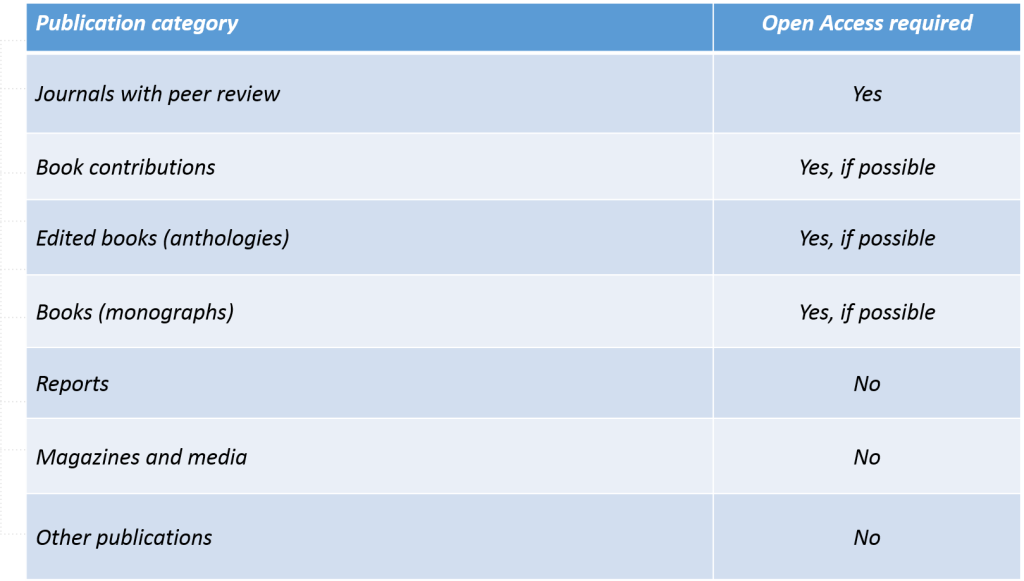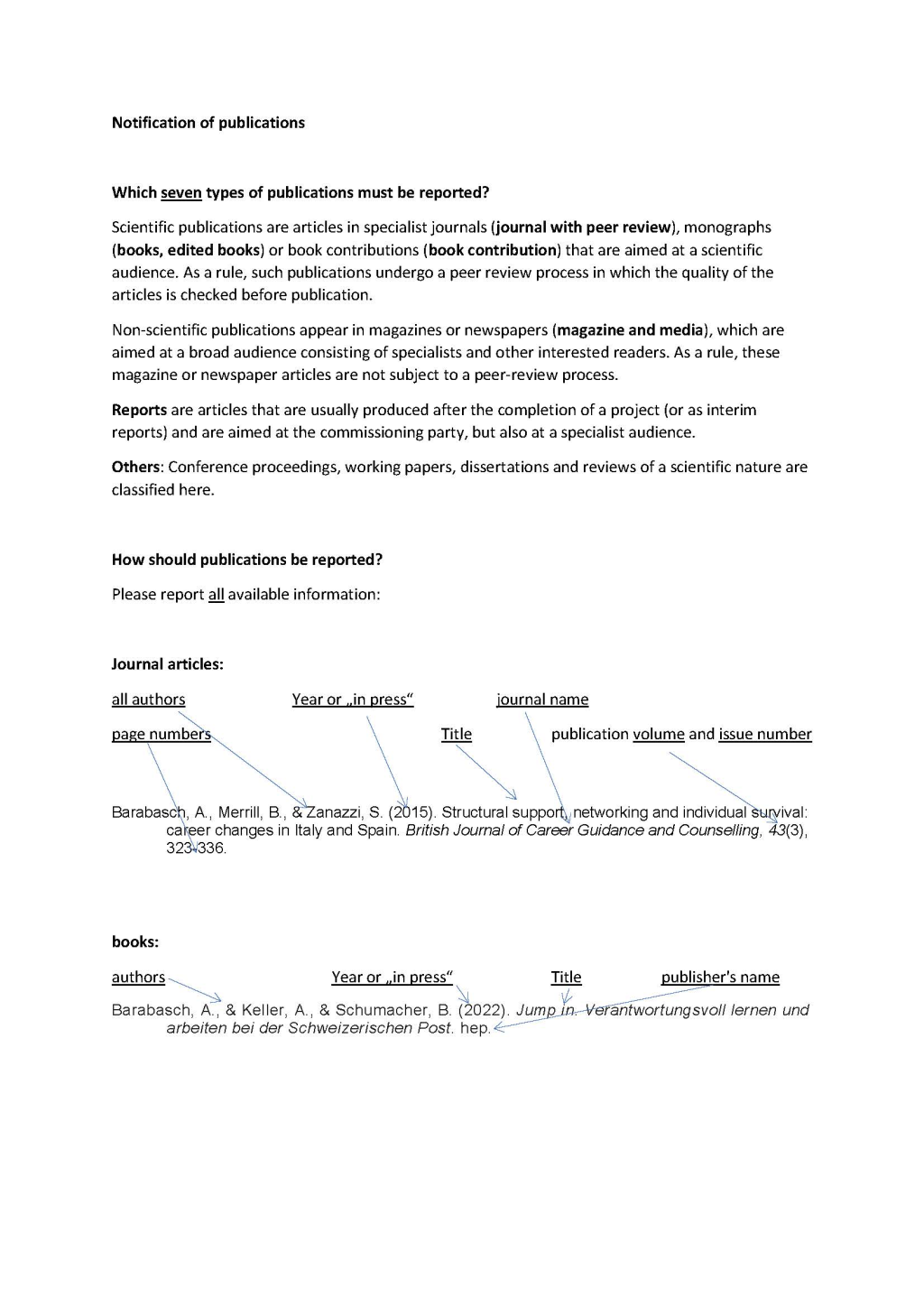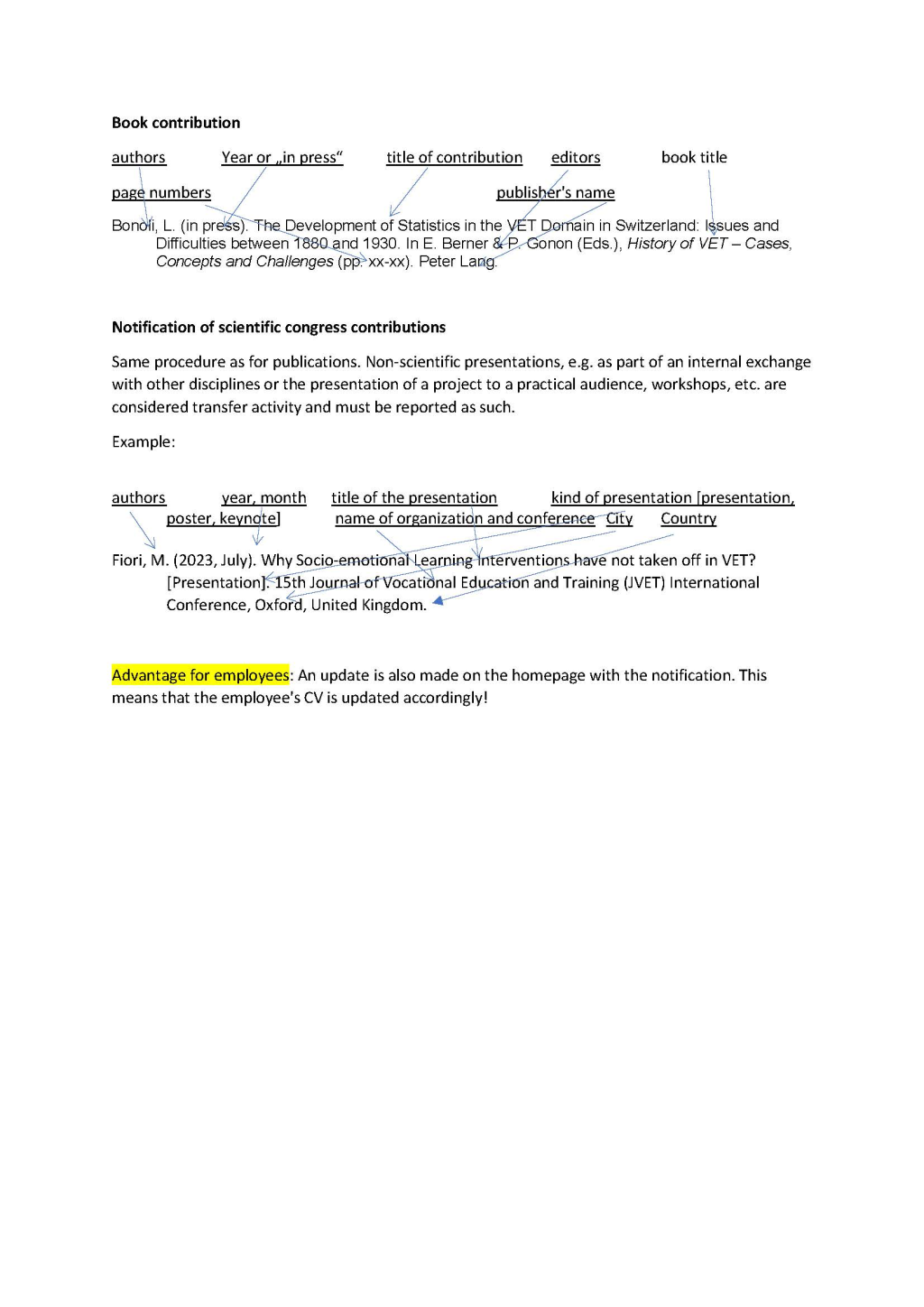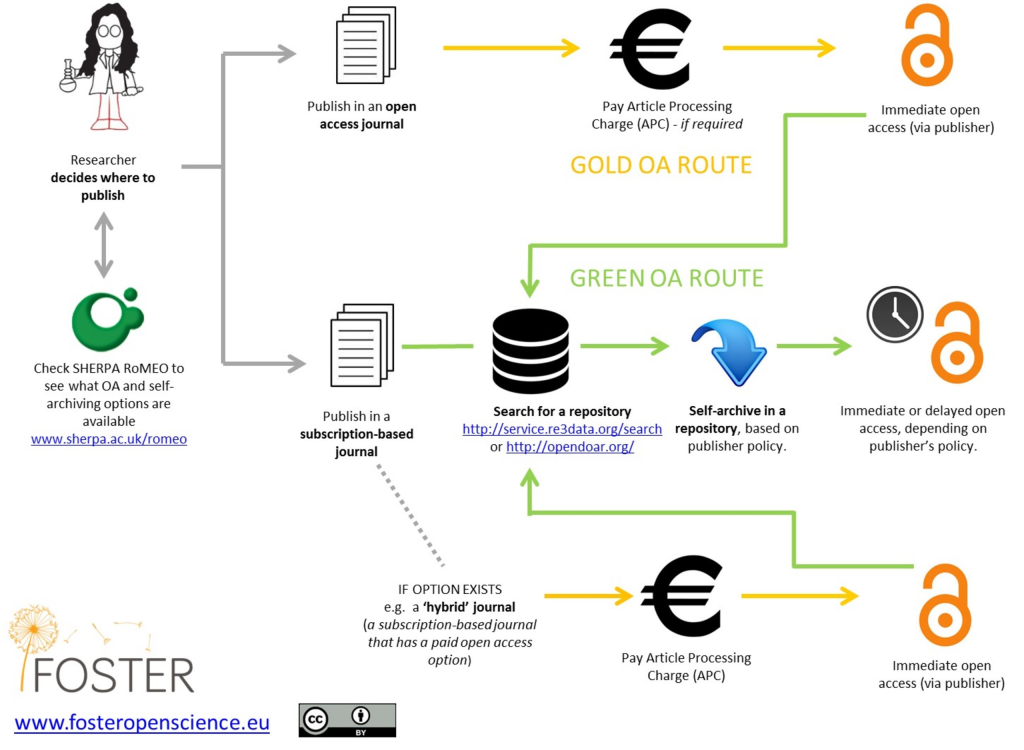Open Access for employees
FAQ Open Access for employees
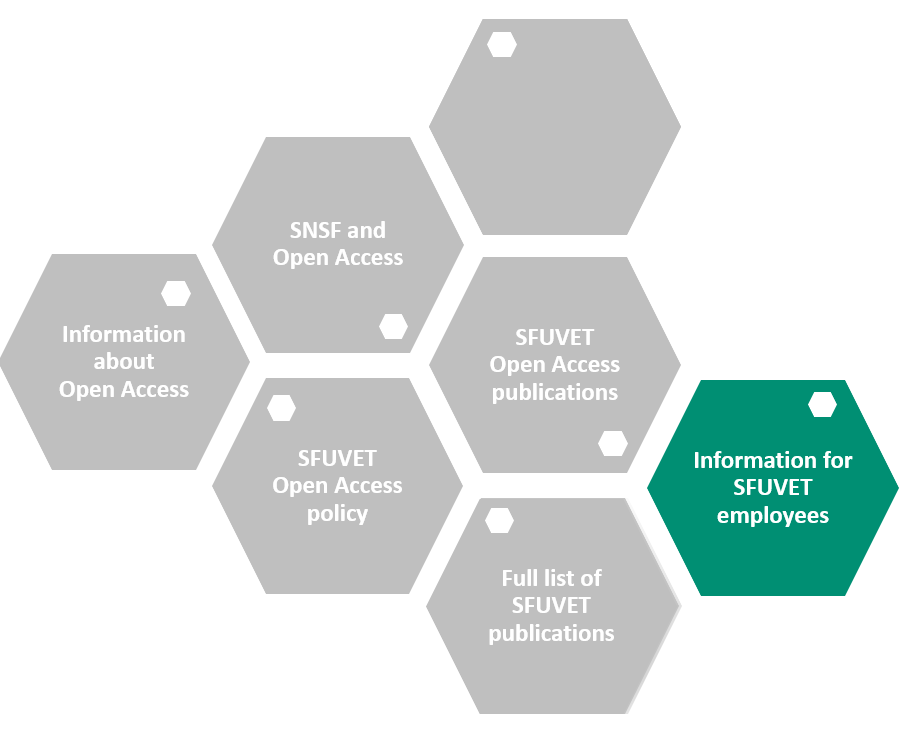
There are essentially two places where all publications by SFUVET staff appear: the SFUVET website (together with links to people, projects, highlighted topics) and the Zenodo repository if they are research publications. In both cases, it is possible to access all or part of the given publication directly.
In Open Access, all publications that are publicly funded (e.g. those relating to SNSF-funded projects) are considered research publications. As a rule, publications appear in (peer-reviewed) journals and compilations. Monographs may also be covered by SFIVET's Open Access policy. This policy does not, however, apply to articles published in journals or on media intended for VET practitioners. The following rules apply to SFIVET publications (see table):
Which seven types of publications must be reported?
Scientific publications are articles in specialist journals (journal with peer review), monographs (books, edited books) or book contributions (book contribution) that are aimed at a scientific audience. As a rule, such publications undergo a peer review process in which the quality of the articles is checked before publication.
Non-scientific publications appear in magazines or newspapers (magazine and media), which are aimed at a broad audience consisting of specialists and other interested readers. As a rule, these magazine or newspaper articles are not subject to a peer-review process.
Reports are articles that are usually produced after the completion of a project (or as interim reports) and are aimed at the commissioning party, but also at a specialist audience.
Others: Conference proceedings, working papers, dissertations and reviews of a scientific nature are classified here.
What is the Green Road to Open Access and what is the process?
For SFIVET employees, the Green Road to Open Access entails entering the metadata for their publication and self-archiving a preliminary version of their publication via the SUPER FORM. Once this is done, their publication will appear in the OA repository. If a publisher does not wish the author to self-archive a preliminary version of the publication in an OA repository, the minimum requirement to be satisfied for green OA is submission of an abstract via the SUPER FORM.
What is the Gold Road to Open Access and what is the process?
For SFIVET employees, the Gold Road to Open Access entails entering the metadata for their publication and submitting a full-text final version (version of record) of their publication via the SUPER FORM. Once this is done, their publication will appear in the OA repository.The publisher may stipulate an embargo period for publication of the version of record. In this case, the minimum requirements to be satisfied for gold OA are: submission of an abstract (via the super form); providing information about the embargo period and submission of the version of record, which will only appear in the OA repository after the embargo period has passed.
SFUVET's Open Access requirements are met if at least the metadata (all information about the publication, such as author, title, publisher, etc.) and an abstract (brief description of the content) have been made accessible in the OA repository. In many cases, it is possible for the full-text version of record to be made accessible after an embargo period has passed.
Authors can enter all of this information on the SUPER FORM.
Publication contracts with publishers should include information regarding secondary publication rights. Often the contractual provisions can also be found on the websites of the publishers. If there is uncertainty regarding the legal situation, authors are asked to contact the publisher directly to obtain the necessary information.
Publisher copyright and open access archiving policies: https://v2.sherpa.ac.uk/romeo/
- The publishers themselves know best how secondary publication rights are handled. We suggest that you first read the publication contract and/or consult the website of the publisher. If you cannot find the information you are looking for, you can contact the publisher by e-mail or telephone.
- Alternatively, you can also find more information at https://v2.sherpa.ac.uk/romeo/ Sherpa Romeo is an online resource operated by SHERPA that provides information about copyright law and the open access self-archiving policies of scientific journals. The database uses a colour coding scheme to classify publishers according to their self-archiving policy.
- SFUVET's Open Access Office is available to help clarify rights.
- Contact: @email
SFUVET provides funding to cover such things as article processing charges (APC) for OA publications. This funding is provided following consultation with one's supervisor/national head of R&D Division.
Open Access - Journals | https://doaj.org/ |
| Open Access - Books |
The Zenodo repository is an online storage service that can be used mainly for scientific datasets, but also for science-related software, publications, reports, presentations, videos, etc. It is a search interface and online library developed by CERN and funded by the European Commission. SFUVET uses the Zenodo repository for its scientific publications and, in a separate community, also for the Bachelor and Master of Science theses of its students.
Publishing on platforms such as ResearchGate or Academia does not satisfy the SNSF's Open Access criteria, as users are required to register on these platforms, thus contradicting the principle of open access. These platforms also pursue economic goals by monetising user data, which the SNSF does not endorse. Even the publication of works on one's own website does not satisfy the SNSF's OA criteria, as the long-term accessibility of such texts is not guaranteed. Here, SFUVET follows the SNSF’s OA guidelines and requires its staff to self-archive their publications in accordance with green or gold OA requirements.
Like Open Access, Open Data means that research data should be open and accessible to all, i.e. researchers and society as a whole. Open access to research data is seen as an essential contribution to the impact, transparency and reproducibility of scientific research. Research data should therefore not only be carefully prepared and archived, but should also be made accessible to the largest possible extent.
For example, the SNSF expects all researchers who receive SNSF funding to:
- keep an archive of the research data on which they worked and which they produced during their research activities;
- make the research data available to other researchers, provided that there are no legal, ethical or copyright issues, confidentiality clauses or similar constraints;
- publish their data and metadata in existing public databases in formats that allow anyone interested to find, access and re-use them without restriction.
Research data is factual material that has been collected, observed or generated and is generally considered by the research community to be necessary for the documentation and validation of research findings.
SFUVET does not give researchers any instructions as to where they should archive their research data. This means that researchers are free to choose or apply established practices in their discipline. For social sciences, for example, data can be archived to the FORS database.
Open Access Office
SFUVET Library, Zollikofen
E-mail
